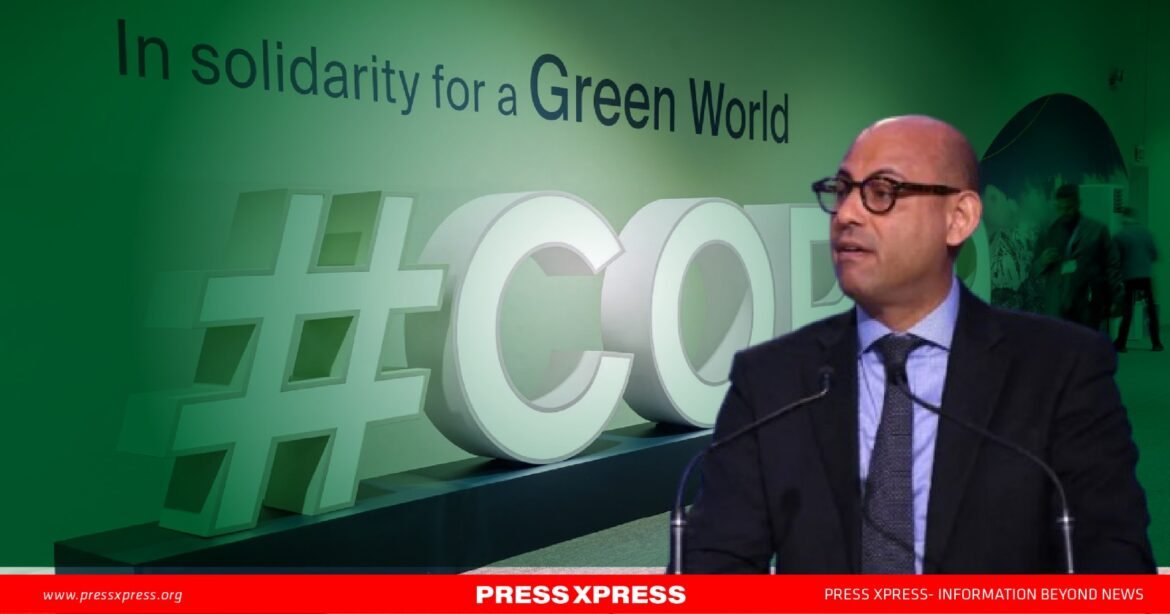As the 29th United Nations Climate Change Conference (COP29) begins, Simon Stiell, the Executive Secretary of the UN Framework Convention on Climate Change (UNFCCC), has urged global leaders to go beyond simply agreeing on a new climate finance target. According to Stiell, while the establishment of a New Collective Quantified Goal (NCQG) is essential, transformative changes to the global financial system are also critical to tackling the escalating climate crisis.
In his opening address, Stiell emphasized the urgency of a comprehensive reform in climate financing, citing the lack of affordable emission reduction strategies for two-thirds of the world’s nations as a severe obstacle. “If at least two-thirds of the world’s nations cannot afford to cut emissions quickly, then every nation pays a brutal price,” he stated. This stark warning underscored Stiell’s call for an NCQG that goes beyond the unfulfilled $100 billion annual commitment initially made by developed countries.
Global Vulnerability and Economic Threat
Highlighting the fragility of international supply chains in the face of climate impacts, Stiell warned, “If nations can’t build resilience into supply chains, the entire global economy will be brought to its knees. No country is immune.” Stiell’s message reflects an increasingly interconnected risk posed by climate change, where financial and material costs reverberate globally. Extreme weather events like the recent floods in Spain and other catastrophes this year, including heatwaves, hurricanes, and droughts, serve as stark reminders of these vulnerabilities.
Stiell’s appeal comes amid a year that is on course to become one of the hottest on record, following the hottest year, 2023. Scientific assessments have underscored the urgency of containing global warming, warning that breaching the 1.5°C threshold above pre-industrial levels could trigger extreme and irreversible climate impacts, from severe weather patterns to widespread food and water insecurity.
Emissions Rising Amid Alarming Projections
Recent data indicate that the world is on track for a temperature rise of between 2.6°C and 3.1°C, with potentially disastrous economic impacts. An increase of this magnitude could result in a 10% loss in global GDP, according to Nature Climate Change.

The rising frequency and intensity of extreme weather events underscore the urgency of climate action. For instance, recent severe floods in Spain in September 2023 led to damages estimated at over €500 million and displaced thousands of residents, disrupting infrastructure and agriculture. Similarly, the Netherlands faced intense rainfall this year, resulting in emergency evacuations and a projected economic toll of approximately €300 million, mainly in agricultural losses and infrastructure repairs.
In the United States, recent hurricanes brought extensive damage to southeastern regions, with estimated costs exceeding $10 billion. These events are stark reminders of the economic and social costs of rising emissions worldwide, extending beyond countries like India—where extreme heat could erode 5.8% of working hours, equivalent to 34 million jobs by 2030.
In 2023 alone, greenhouse gas emissions reached 57.1 gigatons of CO₂ equivalent, an increase of 1.3% year-on-year. To stay below the critical 1.5°C mark, emissions must fall by 42% from 2019 levels by 2030. This daunting target highlights the insufficient pace of global emission cuts, with Stiell cautioning that, “We mustn’t let 1.5°C slip out of reach.

Financing the Shift: $2.4 Trillion Per Year Needed
Stiell estimates that approximately $2.4 trillion per year—quadruple current investments—will be necessary for lower-income and emerging economies to transition to sustainable practices. COP29 discussions are expected to focus on how to secure and allocate this funding to support climate-resilient infrastructure and clean energy technologies.
Stiell reiterated that the anticipated boost in clean energy and infrastructure investment, projected to reach $2 trillion in 2024, should be complemented by robust frameworks for managing loss and damage. Finalizing Article 6 of the Paris Agreement, which allows for international carbon trading, remains a priority. The establishment of operational carbon markets, according to Stiell, would provide an essential tool for countries to meet emission reduction targets efficiently.
Reinforcing Global Climate Action
This year’s COP29 will also see countries introduce their third generation of Nationally Determined Contributions (NDCs), outlining domestic climate goals. These pledges represent a crucial framework in aligning global efforts toward the 1.5°C target. The UNFCCC plans to launch a Climate Plan Campaign to support countries in defining and communicating these commitments effectively. Additionally, the reinstatement of Climate Weeks from 2025 will encourage a more dynamic and sustained approach to climate action.
A Call for Unity and Action
Stiell’s remarks underscore a critical juncture in the climate response: while ambitious goals are essential, implementing systemic financial reforms and uniting global climate action remain the ultimate objectives. “The shift to clean energy and climate resilience will not be stopped,” Stiell affirmed, adding that accelerating this transition is not just a necessity but a shared responsibility.
As COP29 unfolds, the conference aims to lay the groundwork for a reformed financial ecosystem that can mobilize the unprecedented scale of resources required to combat climate change. For Stiell, this shift is imperative, not only for the immediate achievement of climate targets but for the long-term economic stability of all nations.


